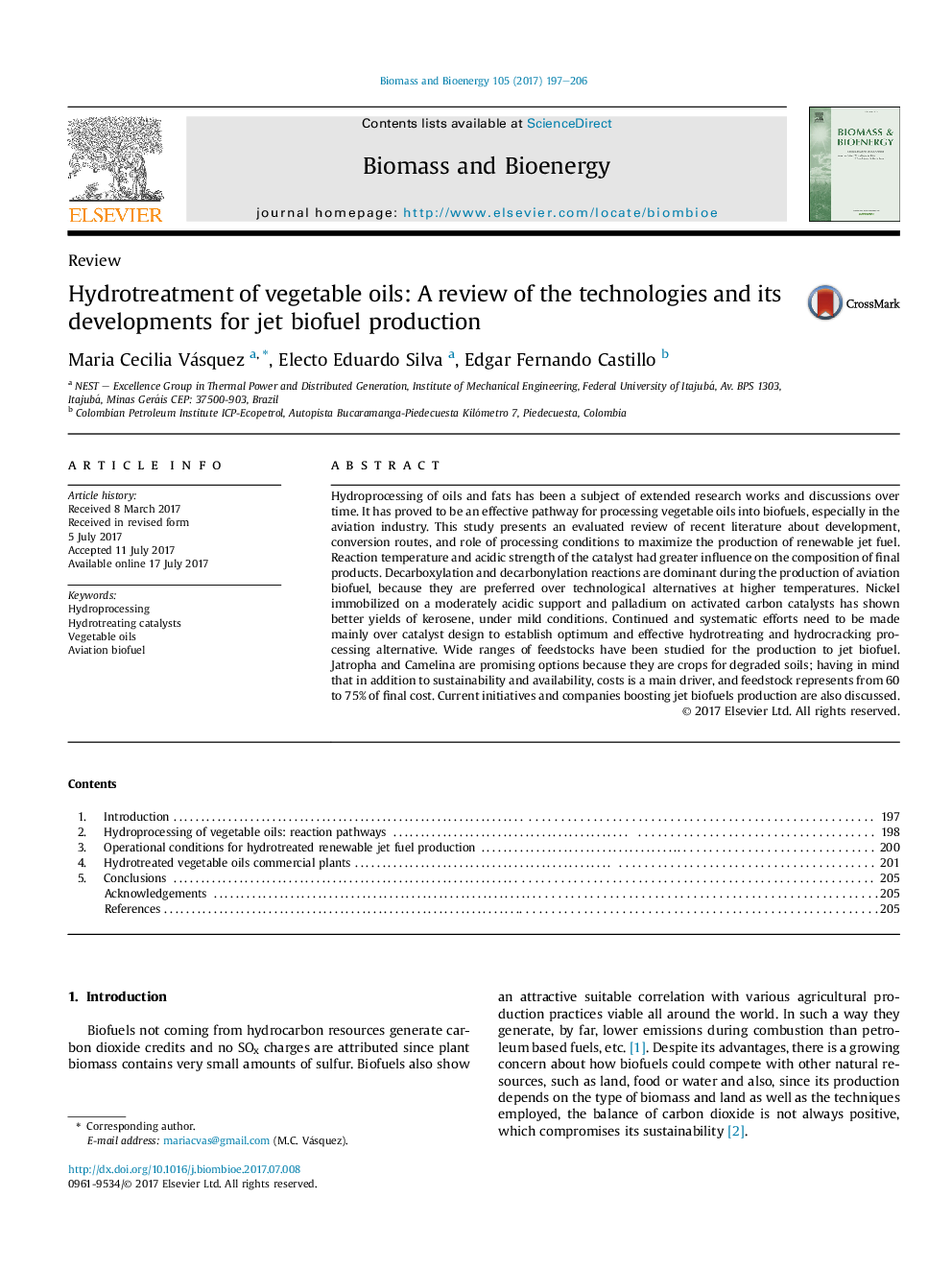| کد مقاله | کد نشریه | سال انتشار | مقاله انگلیسی | نسخه تمام متن |
|---|---|---|---|---|
| 4996158 | 1459788 | 2017 | 10 صفحه PDF | دانلود رایگان |

- Hydrotreatment of vegetable oils and subsequent reactions are described.
- A review of the effect of reaction parameters on the selectivity of the process is presented.
- Heterogenous catalysts have reportedly showed to offer large advantages and so they have been more used in current studies.
- Several initiatives and companies around the world are working to boost commercial production of hydrotreated vegetable oils as renewable biojet fuels for the transport sector.
Hydroprocessing of oils and fats has been a subject of extended research works and discussions over time. It has proved to be an effective pathway for processing vegetable oils into biofuels, especially in the aviation industry. This study presents an evaluated review of recent literature about development, conversion routes, and role of processing conditions to maximize the production of renewable jet fuel. Reaction temperature and acidic strength of the catalyst had greater influence on the composition of final products. Decarboxylation and decarbonylation reactions are dominant during the production of aviation biofuel, because they are preferred over technological alternatives at higher temperatures. Nickel immobilized on a moderately acidic support and palladium on activated carbon catalysts has shown better yields of kerosene, under mild conditions. Continued and systematic efforts need to be made mainly over catalyst design to establish optimum and effective hydrotreating and hydrocracking processing alternative. Wide ranges of feedstocks have been studied for the production to jet biofuel. Jatropha and Camelina are promising options because they are crops for degraded soils; having in mind that in addition to sustainability and availability, costs is a main driver, and feedstock represents from 60 to 75% of final cost. Current initiatives and companies boosting jet biofuels production are also discussed.
Journal: Biomass and Bioenergy - Volume 105, October 2017, Pages 197-206